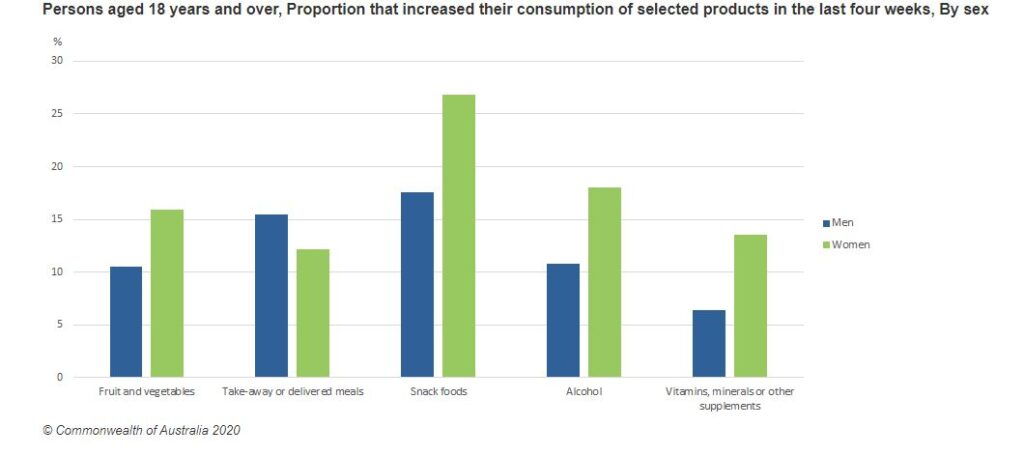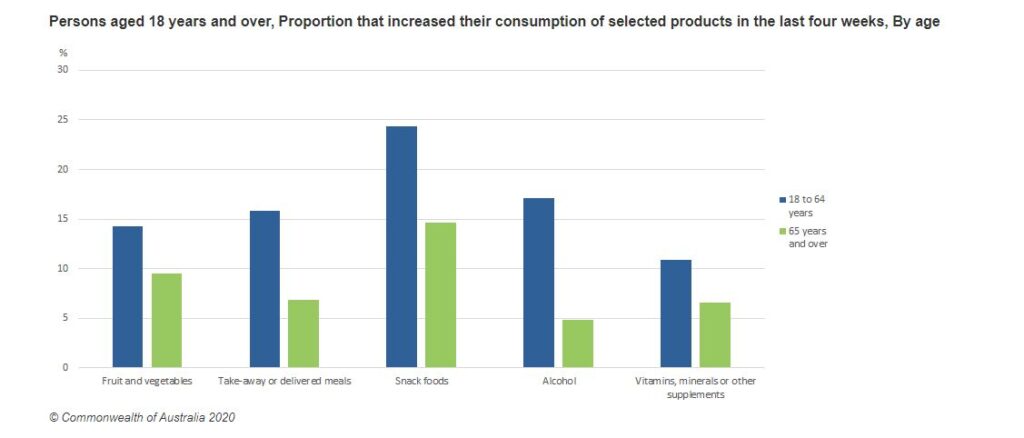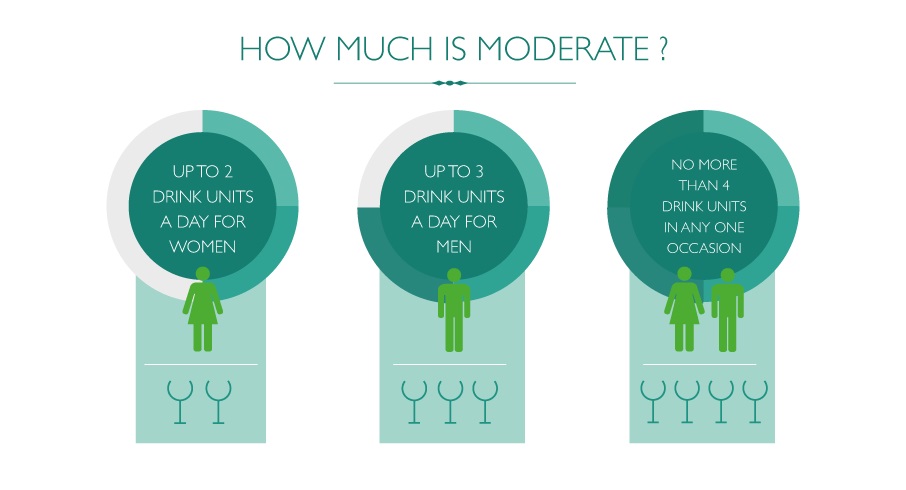By Nicki Bourlioufas
Some Australians are drinking more alcohol during the COVID-19 pandemic, especially females in child caring roles, males who have lost jobs and people experiencing psychological distress.
Drinking more during COVID? Click here to go to a short survey and tell us about your experiences.
A survey from YouGov Galaxy shows that one in five (20%) Australian households reported buying more alcohol than usual since the COVID-19 outbreak in Australia. In those households, 70% report drinking more alcohol than usual since the COVID-19 outbreak and 32% were concerned with the amount of alcohol either they or someone in their household is drinking. Over a third (34 per cent) said they are now drinking alcohol daily. The YouGov Galaxy polling was conducted in April 2020.
A separate survey from the Australian Bureau of Statistics (ABS) during the period early-April to early-May asked respondents if their consumption of certain products, including alcohol, had changed over the period early-April to early-May due to COVID-19, and if so, how it had changed.
The survey revealed that 14% of Australians reported an increase in alcohol consumption. As the chart below show, women, in particular, reported increasing their consumption of alcohol, 18% compared with 10.8% for males while 9.5% reported a decrease. Previous studies have found that women are generally more likely to drink to regulate negative affect and stress reactivity. An ABS survey conducted in June found similar results: 14% of Australians reported an increase in alcohol consumption, 72% of Australians reported drinking alcohol at the same levels, and 15% reported drinking less.
Persons aged 18 years and over, Proportion that increased their consumption of selected products in the last four weeks in May-April


Persons aged 18 years and over, Proportion that increased consumption of selected products in the last four weeks, By age


These findings from the ABS accord with findings from the Australian National University’s Centre for Social Research and Methods’ new report, Alcohol Consumption During the COVID19 Period: May 2020 report. That report found there was a larger self-reported increase in alcohol consumption for females than males in May and having a child-caring role was strong predictor of an increase in alcohol consumption for females during the COVID-19 pandemic.
For males, on the other hand, it was a loss of job or a decline in hours worked which appears to be the strongest predictor of a (self-reported) increase in alcohol consumption during the COVID-19 pandemic, the report found.
For both sexes, “the spread of COVID-19 appears to have increased the rate of psychological distress in Australia, and our data shows that this may have led to some people increasing their consumption of alcohol,” the report concludes.
However, in line with the ABS survey, most Australians said their alcohol consumption has either stayed the same or declined. Furthermore, for those whose alcohol consumption has increased, the level of increase has been moderate.


The Tasmanian government has provided a useful guide to consuming alcohol during the COVID-19 pandemic. It suggests the following tips.
- Try to stay within the NHMRC draft alcohol guidelines for healthy men and women of no more than four standard drinks in any one day and no more than ten a week.
- Avoid temptations to stock up on alcohol.
- Aim to have at least two consecutive days alcohol free.
- Choose non-alcoholic drinks like sparkling mineral water, soda water, non-alcoholic wines and beers, milk and herbal teas.
- When catching up with family and friends online, try to vary plans so you are not always “catching up for a drink”. There are many online games you can play with your friends.
- Try to avoid using alcohol to cope with boredom, loneliness or stress.
- Look after your physical and mental health by exercising often, eating well, sleeping well and staying connected with family and friends.
Where to get help for yourself and others
- Find information about alcohol at the Australian Department of Health website
- Call a support service:
- National Alcohol and Other Drug Hotline 1800 250 015
- Alcohol and Drug Information Service on 1800 811 994
- Family Drug Support 1300 368 186
- Tasmanian Alcohol and Drug Services 1300 139 641
- Lifeline 13 11 14
- Contact a support group in your local area, such as Alcoholics Anonymous
